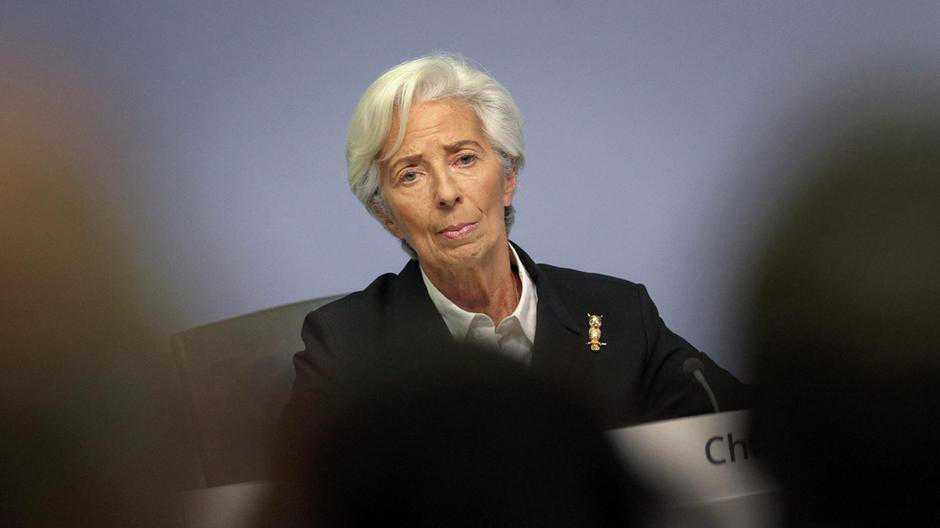ECB’s Christine Lagarde sounds alarm over usage of cryptos for the money laundering
08 May, 2021

European Central Bank chief Christine Lagarde sounded the alarm over the utilization of cryptocurrencies for the money laundering on Friday as she backed the adoption of digital currencies by central banks.
The ECB president said persons were going for a "real risk" by buying cryptos with her comments coming a day after Bank of England governor Andrew Bailey warned investors to get cryptos only “if you’re prepared to lose your money”.
“Cryptocurrencies - both of these things don’t go well together and I totally agree with Andrew Bailey’s conclusion due to that,” Ms Lagarde told a virtual webinar, hosted by the European University Institute, in which she quoted the BoE governor.
“There are crypto assets which people are free to spend money on and take full risk into and there are specific cryptos that are, in my own view, prone to money laundering activities - it’s a real risk that persons are taking.”
Central banks and governments all over the world are becoming increasingly concerned over the use of cryptocurrencies for money laundering, financing terrorism and other unlawful activities.
Bitcoin and Ethereum, the two biggest cryptocurrencies, surged to record highs this year as institutional investors piled in to the digital asset space encouraging retail investors to check out suit.
Meanwhile, Meme-based virtual currency Dogecoin soared to a fresh high this week, extending its 2021 rally to be the fourth-biggest digital coin.
Ms Lagarde said crypto assets had nothing in connection with stable coins or the digital currencies being considered by central banks, including the digital euro.
While central bank digital currencies, or CBDCs, are not yet in widespread use, a lot more than 60 central banks are actually exploring or developing CBDCs, PricewaterhouseCoopers said.
Central banks, like the ECB, aim to use the overall flexibility of digital cash to improve payment systems, ease some of the complexities of negative interest levels and ensure they don't cede too much control to digital currencies.
However, the scope and scale of central bank digital currency research varies from country to country. AS THE People's Bank of China is in advanced stages of testing an electronic yuan that would be employed by individuals and businesses, the Bahamas includes a fully working, digital 'Sand Dollar' and Sweden could have an electronic currency within five years.
Last month, the BoE pledged to synergy with the UK Treasury to examine the potential creation of its own digital currency.
Meanwhile, the ECB recently completed a public consultation on an electronic euro, with privacy the main factor demanded by Europeans, accompanied by security.
Ms Lagarde said she was first drawn to digital currency when she headed the International Monetary Fund, because they have the potential to be more inclusive and cheaper for emerging market countries, in addition to being faster and better.
“When you begin looking at a lot of those remittances that flow from country to country, it begs for that kind of instrument,” she said.
“It’s a large project, which is filled up with plenty of technical issues, issues of principles, issues of sovereignty, issues of monetary policy transmission and the issue of the role to be played by the original actors that we are used to.
“I know there is a large amount of concern and worry from the commercial banks but we owe it to the Europeans to actually explore it. Europeans are telling us … they are incredibly interested. They want it; the pandemic has accelerated the procedure and about 50 per cent of Europeans say, 'I'd like to pay digitally, Let me use a device like that'.”
Source: www.thenationalnews.com
TAG(s):
